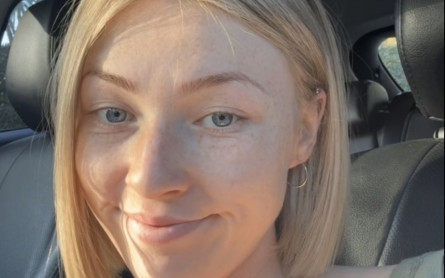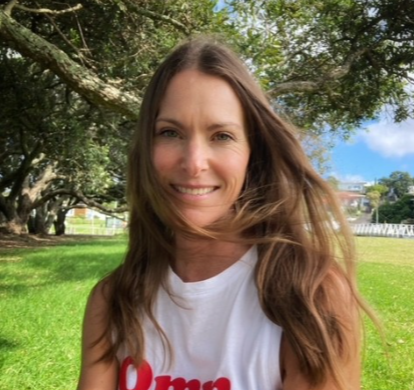
Planning & budgeting
Saving & investing
KiwiSaver
Tackling debt
Protecting wealth
Retirement
Home buying
Life events
Setting goals
Money tracking
Plan your spending with a budget
Getting advice
Studying
Get better with money
What pūtea beliefs do you have?
How to build up your emergency savings to cover unexpected costs
How to save your money
How to start investing
Find a financial adviser to help you invest
Your investment profile
Compound interest
Net worth
Types of investments
Term deposits
Bonds
Investment funds
Shares
Property investment
How KiwiSaver works and why it's worth joining
How to pick the right KiwiSaver fund
Make the most of KiwiSaver and grow your balance
How KiwiSaver can help you get into your first home
Applying for a KiwiSaver hardship withdrawal
How to use buy now pay later
What you really need to know before you use credit
How to get out of debt quickly
Credit reports
Know your rights
Pros and cons of debt consolidation
Credit cards
Car loans
Personal loans
Hire purchase
Student loans
Getting a fine
What happens if I start to struggle with moni?
How to protect yourself from fraud and being scammed
About insurance
Insurance types
Insuring ourselves
Wills
Enduring powers of attorney
Family trusts
Insuring our homes
Losing a partner
Redundancy
Serious diagnosis
How to cope with the aftermath of fraud
Separation
About NZ Super
This year's NZ Super rates
When you’re thinking of living in a retirement village
How to plan, save and invest for retirement
Manage your money in retirement
Find housing options in retirement
Four approaches to spending in retirement
Planning & budgeting
Saving & investing
How to build up your emergency savings to cover unexpected costs
How to save your money
How to start investing
Find a financial adviser to help you invest
Your investment profile
Compound interest
Net worth
Types of investments
Term deposits
Bonds
Investment funds
Shares
Property investment
View all
KiwiSaver
Tackling debt
How to use buy now pay later
What you really need to know before you use credit
How to get out of debt quickly
Credit reports
Know your rights
Pros and cons of debt consolidation
Credit cards
Car loans
Personal loans
Hire purchase
Student loans
Getting a fine
What happens if I start to struggle with moni?
View all
Protecting wealth
Retirement
Home buying
22 September 2025
Reading time: 5 minutes
Told to Philippa Prentice,
0 comments

A bit about Grace: Formerly a hairdressing and make-up student, these days West Aucklander Grace works as a service adviser. In her spare time, she likes to spend time with animals, go to the gym and ice skate, plus she donates plasma every two weeks to help give back to the community.
To spend less than you earn to help you save and avoid debt. It was given to me when I was about 14 by my older brother, who had already been there, done that. I didn’t really understand at the time because I didn’t have any responsibilities yet, but I paid off my braces over two years – which was quite a challenge while I was at my first job and because I’d never really paid off anything big like that before – and now I’m living at home with my mum so I can save as much as possible to buy a house.
By saving regularly, you can also invest for the future, and build a financial safety net for emergencies. I like to put at least $400 dollars into my savings account every time I get paid, just in case I need to fall back on it. I’ve had to use it a few times, but I always save it back when I can. I like watching my savings go up and not down, and I enjoy the peace of mind that comes from knowing I have a financial cushion for unexpected expenses.
I consider myself a bit of both, but I lean more towards saving. I do indulge in occasional spending on things I enjoy. I love an iced chocolate, jewellery and buying toys for my cat, but I see this as a sign of enjoyment and it makes me feel happy. Overall, I prioritise saving more than I spend.

“I love an iced chocolate, jewellery and buying toys for my cat, but I prioritise saving more than I spend.”
My proudest moment was buying my first car when I was 17. It was a significant milestone because it represented my hard work and financial independence, and showed me that with careful saving and budgeting, I could achieve my goals. I managed to save up for it while working part-time at Countdown as a checkout operator. After making small sacrifices, not buying things I didn’t need and making sure I was consistent with my saving, being able to afford the car and everything I needed for myself was incredibly satisfying. Every time I got paid, I’d put small amounts into an account I couldn’t touch, so I didn’t get sidetracked.
Knowing that I have enough in my account for emergencies, so I’m prepared for whatever comes my way, and being able to save towards anything I need. I do find it hard to save but I manage as best as I can. It means I can plan for expenses and achieve my financial goals without stress.

“Every time I got paid, I’d put small amounts into an account I couldn’t touch, so I didn’t get sidetracked.”
One money belief I’ve inherited from my whānau is the importance of saving for the future. From my friends, I've learned the importance of budgeting and living within my means. They taught me to track my expenses and prioritise needs over wants.
I’ve also picked up the value of contributing to KiwiSaver for my retirement savings. My parents actually set up KiwiSaver for me, and when I got birthday money when I was young, I’d contribute some to my account. When I started working, I selected 5% as my voluntary contribution amount, and I feel like this is right for me because it gives me enough to save and spend. Combining these beliefs has helped me develop a balanced approach to managing my finances.
It would say, “You’re doing well! Keep saving and budgeting wisely. Make sure to track your spending and avoid unnecessary expenses. Keep contributing to your savings and investments, and you’ll continue to grow your financial security. Stay focused and disciplined, and you’ll achieve your financial dreams. Remember to enjoy your money responsibly and prioritise your financial health. You’re on the right path!”
My ideal future would be to be financially stable; own a home somewhere rural with a big backyard, close to the beach and a park; and just be happy. When I think about my retirement, I see a peaceful and fulfilling life. I imagine spending more time with family and friends, travelling to new places and pursuing hobbies I’ve always wanted to explore. Having a solid retirement plan and savings gives me confidence that I can achieve this dream.
If you’d like to join the conversation and share your own experiences with money, we’d love to hear from you. Fill in this form, and we’ll get back to you. Ngā mihi!
 Philippa Prentice
Philippa Prentice
Philippa is Sorted’s communications specialist. Previously a journalist for 20 years, whose work has been published in Aotearoa and Australia, she says Sorted has been a game-changer for her own finances.
Use verification code from your authenticator app. How to use authenticator apps.
Code is invalid. Please try again
Don't have an account? Sign up
Or log in with our social media platforms


A free account gives you your very own space where you can save your tools and track your progress as you get ahead.
Or sign up using Google:



Comments (0)
Comments
No one has commented on this page yet.
RSS feed for comments on this page | RSS feed for all comments